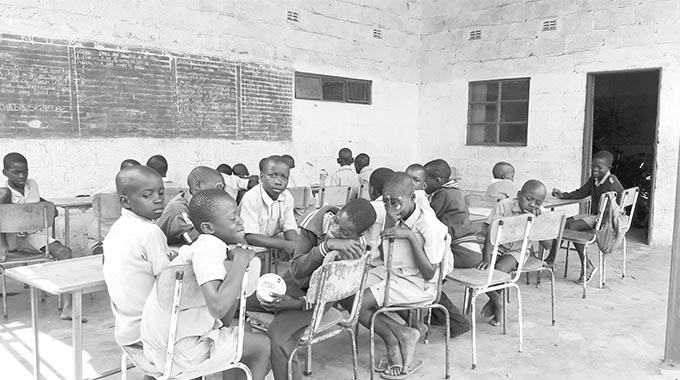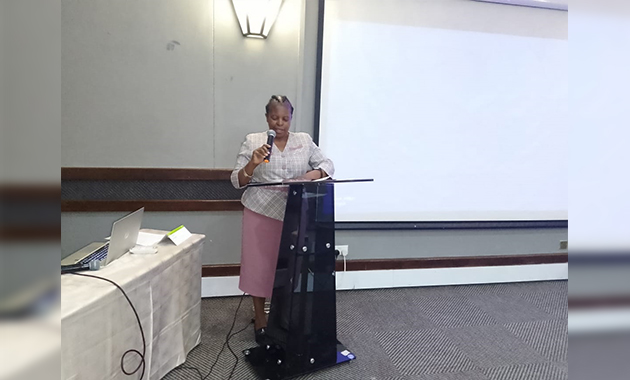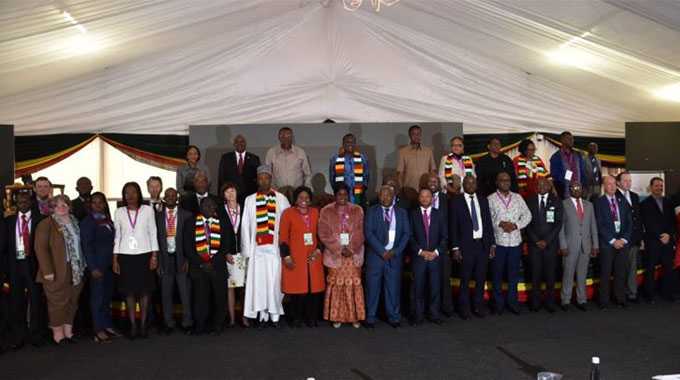The agonies of seeking fortune for a rural child

Thupeyo Muleya
The quest to learn is founded on a basic belief that education turns around a life.
This happens in testimonies where parents point their young ones at success stories next door.
That practice has served to inspire many young people who ultimately dream of that gown, cap of knowledge and the final dream life of an educated soul.
It is every Zimbabwean child’s dream to access basic education that lays a foundation to their future and key to success and fortune.
This is provided for by Section 75 of the constitution and President Mnangagwa’s thrust to restore pride in the national education system.
However, many children, depending on the region and place they are raised endure the agonies of seeking the fortune linked to education.
Rural children mostly those in remote areas or resettlement areas have been on the receiving end of the challenges which come with the quest of being educated.
These could be accessing documentation, accommodation and proximity to schools.
Most of them walk long distances to school all in a bid to lay the foundation for their various chosen destinies.
Matabeleland South Province, among other regions, is the worst affected in terms of the provision of quality of education and obtaining of basic needs.
It is estimated that 30 percent of school-going children in the province are undocumented due to a number of reasons including being raised in broken families.
According to UNICEF, about 250 million children in the world cannot read, write or do basic maths, 130 million of them have never attended school.
In general terms, the children excluded from learning opportunities are among the most vulnerable and hard to reach in the world.
It is understood that for children aged over five but under the age of eight the normal walking distance to access a school is 3km and 4.8km for those aged over the age of 8 and under 16.
The unavailability or inaccessible nature of learning institutions in the province has resulted in increased school dropouts, mostly during transition from primary to secondary.
Incidents of child or early marriages and juvenile delinquency are common in cases where bush boarding is practised.
This education dream has become elusive for many children in Beitbridge district especially in Ward 14 where some of them trek for between 10km and 17km to seek that solid foundation for their desired destiny.
As a way of easing the painstakingly long walking distances to access education, a total of 44 pupils are now staying at Jopembe Primary School under a practice commonly known as bush boarding.
In this case, during the day they use makeshift classrooms, which is a former farm house. At night the building becomes their dormitory.
When one gets to the school, opened in 2002, they are welcomed by blankets and clothes on the fence and a lot of distraught faces from the people some of whom probably showing signs of exhaustion from a not so comfortable sleep.
According to the School Development Committee (SDC) chairperson Mr Albert Ncube, 24 boys stay in one room with male teachers, while 20 girls stay with female teachers.
He said besides a shortage in accommodation and teaching facilities the girls, especially those in Grades Six and Seven, are vulnerable to sexual abuse by close relatives.
It is understood that at least six pupils from the school have been raped in the last three years.
Mr Ncube said pupils come from areas that include Mazunga (11km), Tshambengedzani (12km), Mpanyani (18km), Shonisani (14km), Section 3 (9km), Basasa (5km), Malahlani (4km) and Govha (17km).
“We have a serious problem of infrastructure shortage. The enrolment is very low and we cannot rely on school levies to build classroom blocks and teachers’ cottages,” he said.
“At the moment we have one classroom block which was built by the Zimbabwe National Army (in 2016) and is housing ECD and Grade 7 classes. The rest are using the former farm house.
“Our situation is dire, as you can see we are in resettlement areas where villages are sparse and most of the people here are either retired or low income earners. We have children from as far as 18km.
As a result, parents from far away villages agreed to make children stay at the school to save children from trekking longer distances daily.
“They have also hired a woman to prepare their meals. However, the living conditions are disheartening, they are crowded and sleep on the floor”.
He said well-wishers have donated building material for another classroom block which was now at roofing level.
He said though the parents were pooling resources together they needed assistance in building three more classroom blocks and at least four teachers’ cottages.
“It is important that we create a child friendly school, but now you will realise that we have a shortage of ablution facilities. The few toilets we had built have started giving in because the soils here are very loose.
“We are appealing to well-wishers to come to our rescue. Further we are worried with the continued sexual abuse of children around this area mostly by close relatives,” said Mr Ncube.
He said they have engaged local politicians and community leaders to help minimise the children’s misery.
Beitbridge’s Proportional Representation Member of Parliament Ms Lisa Singo said the situation at Jopembe was deplorable and needed urgent attention.
“We have been engaging the community in the area on the way forward.
It is important that we address the situation there with the urgency it deserves. “Further we have roped in the police’s victim friendly unit to conduct awareness campaigns against sexual abuse and domestic violence,” she said.
Chief Musanda Vho Stauze (David Mbedzi) said the acute shortage of schools and institutions of higher learning in the area was a cause for concern.
The district has an estimated population of 200 000 and 15 secondary schools of which only two have boarding facilities. In addition, there are 70 primary schools.
“I have always and will keep on asking our government and NGOs to assist us in developing our area through education. Education is very important and should not be taken for granted,” said Vho Stauze.
“If our children are not educated, it kills our future and the enemy called illiteracy and poverty will always be there. I also urge our politicians to give priority to education development.
“We must unite our people to make Beitbridge great. Together we can make it. If we are illiterate, we are going nowhere as a people and we will always complain about unemployment. For learning to take place, education facilities have to be conducive and learning materials have to be readily available”.
He added: “We can’t do it all at once, but let’s take a step forward and prioritise education. The government knows now our issues and we will keep reminding them”.
He warned those involved in cases of sexual abuse that the long arm of the law will catch up with them.
“I don’t have details concerning the sexual abuse cases, but whoever does that should rot in jail. We are not only talking about a young child; we are talking about the future. So if you abuse the future leaders, who is going to lead us tomorrow? We don’t need monsters who prey on our future generation,” said the chief.
λ Feedback: [email protected]











Comments